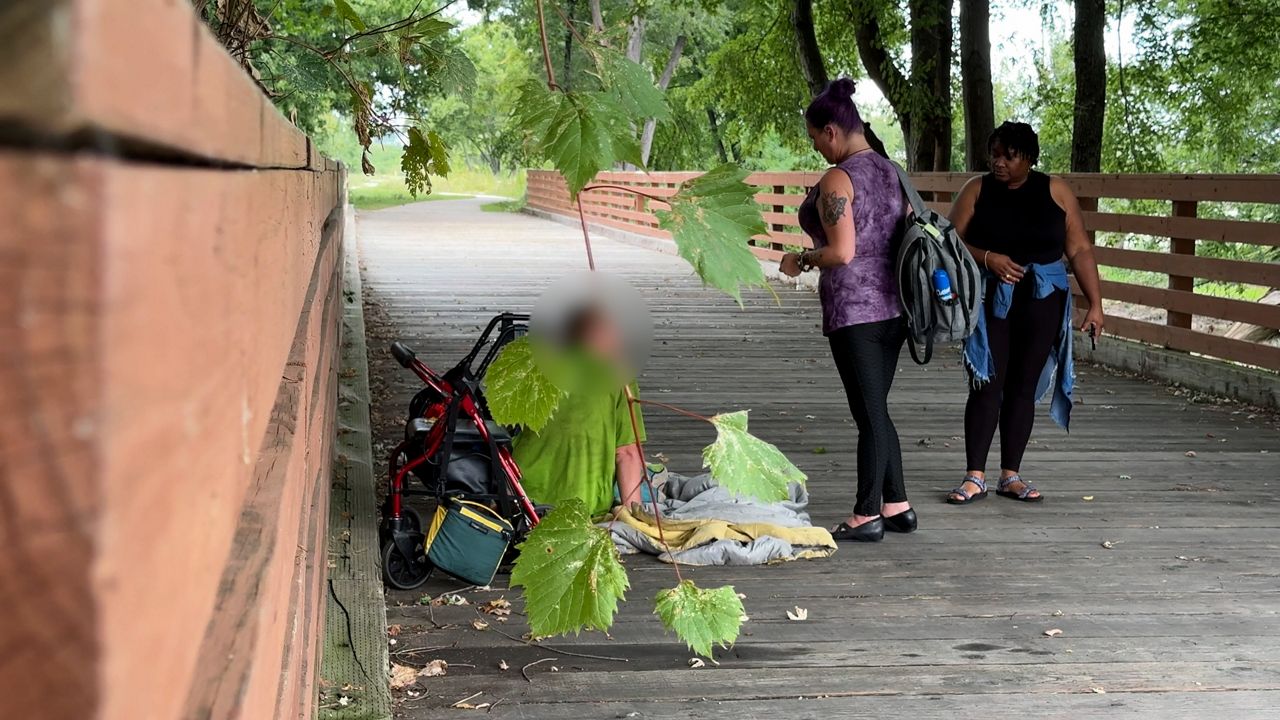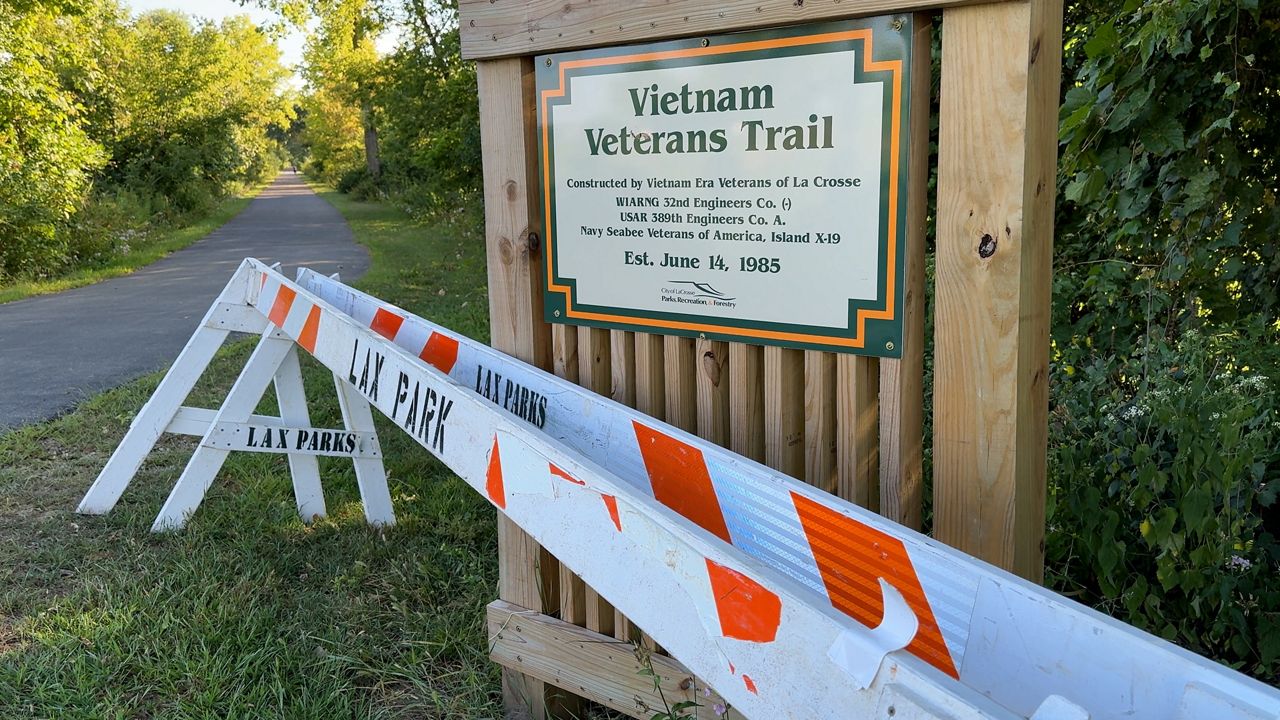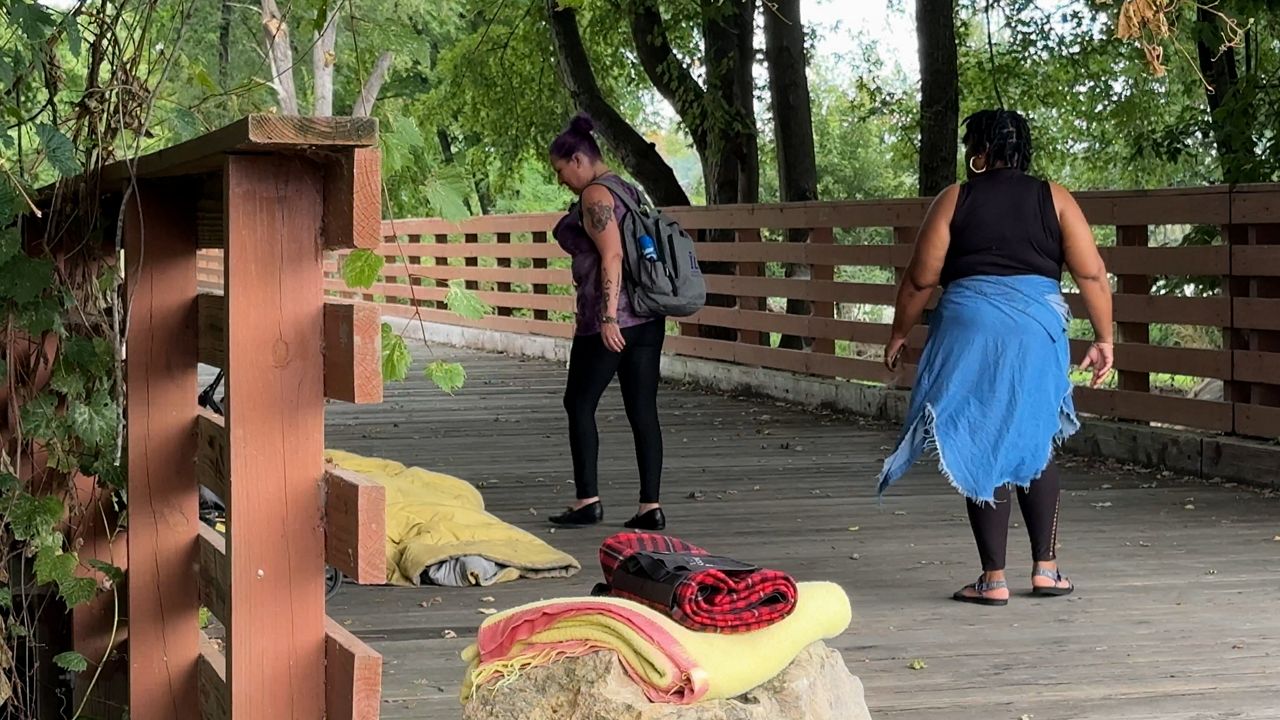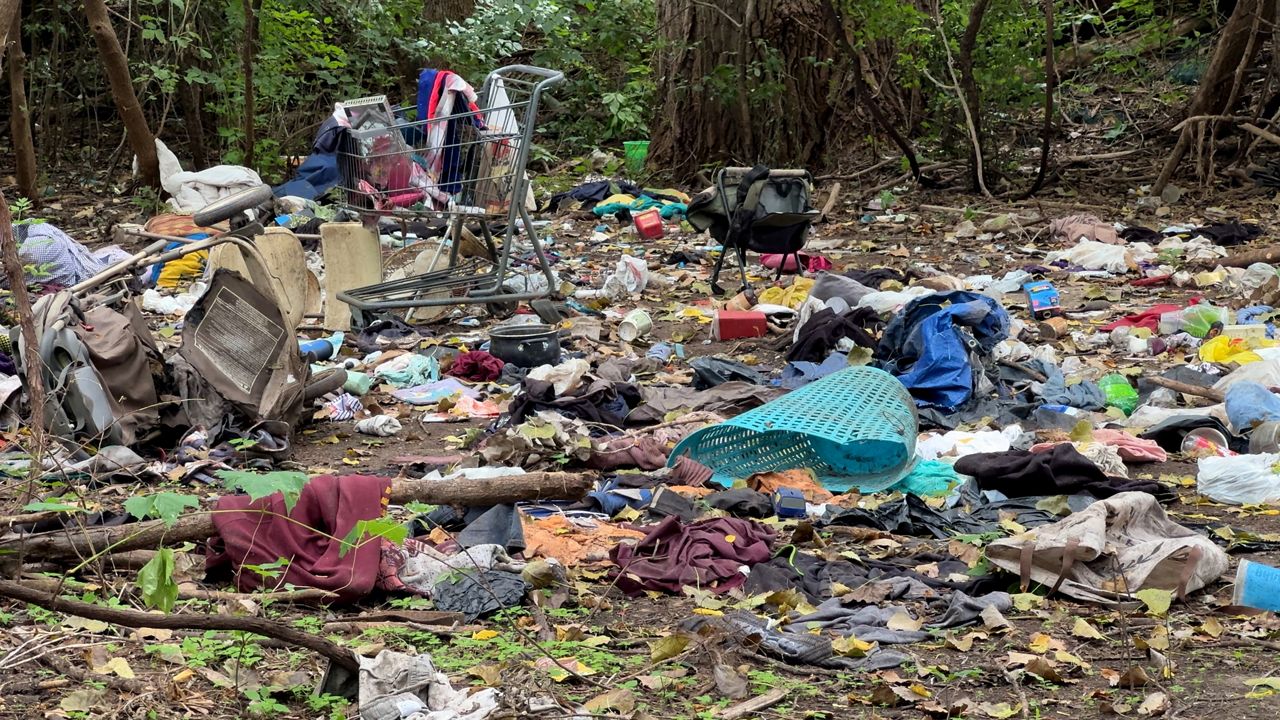LA CROSSE, Wis. — La Crosse outreach workers say they need more resources to tackle homelessness in the city.
It’s an area that has one of the highest percentages of unsheltered people in the state.
Lakisha Hudson and Tamara Zoerb are two homeless outreach specialists in La Crosse, who work for Independent Living Resources. It’s an organization that aims to “help people with disabilities achieve or maintain more self-sufficient and productive lives in their communities.”
They go out into the community and try to connect with people who are unsheltered and get them help.

“Hey there, how are you doing?” asked Hudson, as she approached a man who was sleeping on a bridge. “You doing alright? Just taking it easy?”
Hudson said she has checked on this man before. She said he struggles with mental health issues and has not been taking his medication. They have no way to contact him, so whenever they find him at different places throughout La Crosse, they try to get him to accept help.
But without being able to call or email, it’s difficult to follow up with him.
“Homelessness is a rather large issue here,” said Hudson. “People just don’t have anywhere to go.”
Zoerb said the challenge comes from a variety of factors, including not having enough shelters, rehabilitation centers and affordable housing options in the area.
“There is a lack of support and understanding,” said Zoerb. “So many people [struggling with homelessness] feel that no one wants to help them, when that’s not necessarily it. The homelessness tends to be criminalized and I would say that is unfair.”
Zoerb and Hudson said until just a few weeks ago, most of La Crosse’s unhoused population lived in encampments along the Vietnam Veterans Trail. They had to move after the city council voted to ban camping on all city-owned property. City leaders and many residents of La Crosse said the homeless camps were unsafe and unsanitary.

Hudson said it’s now harder to reach some of the people they’ve been trying to help.
“We can’t find [those struggling with homelessness] to make sure they have what they need, and that is honestly one of my biggest concerns,” she said.
Cassandra Francis, who’s been homeless for five years, said she plans to camp deeper into the forest/marsh area after being kicked out of the encampment.
“We have a decent little spot picked out, and if that does not work out, we have about five or six alternatives,” said Francis.
She said the city doesn’t give them many other options. The Salvation Army and Catholic Charities in La Crosse do offer overnight shelter services — but Francis said they fill up fast.
“They don’t do anything to help you get housing except find the barriers to housing and then pass along information,” said Francis. “What is that going to do? I have been on the list for five years. What is collecting my information going to do except put me on a statistics board for you?”
Francis said a criminal record and previous evictions prevent her from being considered for many jobs and housing options.
“I should, by all accounts, be able to have a normal functioning life, but I can’t. I should not be chased like a dog or suffering out in the cold or the rain,” she said.
She said her struggles with homelessness started due to an abusive relationship and drug use.
“I got into a relationship with someone who turned out to be really abusive and got me on drugs,” she said. “My life fell apart, and I stopped being able to go to school, and quit my job, and got really depressed. Then I lost my apartment five months after that, and I have been on the street ever since. I have healed myself a lot. I still struggle, but I mostly struggle with belief in myself.”

Hudson and Zoerb didn’t want to comment directly on the city’s camping ban, but said they do want to raise awareness about the need for long-term solutions. They said they wish people would be more understanding about what unsheltered people are going through.
“A lot of people blame them for being homeless, but I would say a lot of it is due to them not having the necessities that they need,” said Hudson, who became a homeless outreach specialist to prevent others from experiencing what she did.
At one point in her life, Hudson was homeless. She said a little help can make all the difference.

“There was so much on my plate, and I couldn’t navigate everything, and I had children,” said Hudson. “It was just having someone to help me navigate the systems.”
Hudson and Zoerb said they know there’s still a lot of work to be done to tackle the challenge of ending homelessness in La Crosse and beyond. However, they said they are proud to be part of it, checking on one person at a time.
According to the most recent data from the World Population Review, La Crosse is a city of about 50,878 people. On any given night in La Crosse, approximately 150-160 people, or 0.32% of the population are unsheltered, one of the highest in the state.
Comparatively, Madison has a population of 282,005 people and an unhoused population of 624 people on any given night, which is 0.22% of the city’s population. Milwaukee has a population of 577,222 people and an unhoused population of 1,056 on any given night, which is about 0.18% of the city’s population.



